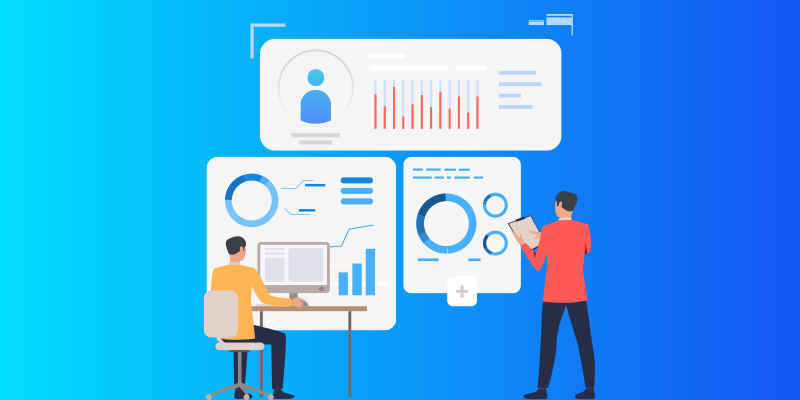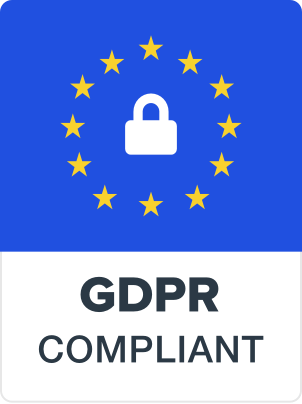Streamlining Auditing Processes with Top Digital Audit Applications

August 25 , 2023
Traditional auditing techniques are no longer sufficient to fulfil the needs of current businesses in the fast-paced, technologically-driven corporate environment. Manual audits take a lot of time, are prone to mistakes, and frequently lack the flexibility needed to keep up with the quickly changing corporate settings. In order to streamline their auditing procedures, organizations are increasingly relying on digital audit solutions that make use of data analytics and team management tools. In this blog post, we’ll examine the top digital audit application currently on the market, emphasizing their data analytics capabilities, team management features, and Audit Dashboards, which are crucial for effective and precise auditing.
The Rise of Digital Audit Applications
The introduction of digital audit apps has completely changed the auditing environment and given auditors sophisticated tools to automate their procedures. These programs do not need manual data entry or analysis, thereby lowering the possibility of human mistakes and increasing the audit’s overall effectiveness. Additionally, they make it possible for auditors to manage complicated data sets with simplicity and accuracy, producing audit results that are more accurate and trustworthy.
Leveraging Data Analytics for Efficient Auditing

Top digital audit programs have strong data analytics app capabilities, which is one of their essential characteristics. These tools allow auditors to swiftly spot patterns, abnormalities, and possible hazards by analyzing enormous volumes of operational and financial data in real time. By utilizing data analytics, auditors may more accurately spot fraudulent activity, identify areas for growth, and get insightful information about an organization’s financial health. According to Statista, Morningstar Advisor Workstation was the world’s most used data analytics program as of 2022. At that time, 24.83 percent of financial planning and consulting firms worldwide were utilizing Morningstar Advisor Workstation.
Enhancing Team Collaboration with Audit Applications

The auditing process must be managed as a team, especially in big firms with many stakeholders and auditors. Applications for digital audits provide team management features that enable easy communication between auditors, clients, and other stakeholders. Teams can work together effectively thanks to features like document sharing, task assignment, and real-time communication capabilities, ensuring that all stakeholders are informed during the audit.
Audit Dashboard: A Centralized Overview

The brain of a digital audit program is an Audit Dashboard, which gives auditors a consolidated view of the whole audit procedure. The dashboard provides up-to-the-minute information on the status of the audit, important performance metrics, and potentially problematic areas. Auditors may rapidly understand the state of the audit and take preventative action to solve any potential problems with the use of visually intuitive charts and graphs. The Audit Dashboard is a crucial tool for audit management since it improves accountability and transparency within the auditing process.
Benefits of Top Digital Audit Applications
In this section, we will delve deeper into the benefits of top digital audit applications, focusing on how their data analytics capabilities, team management tools, and Audit Dashboards contribute to a more efficient and effective auditing process.
-
Data Analytics for Insightful Auditing
The integration of data analytics into digital audit applications has transformed the way auditors approach their work. Traditionally, auditors would rely on sampling methods to assess financial records manually, which could lead to overlooking critical discrepancies. However, with data analytics, auditors can now analyze complete datasets, gaining a comprehensive view of an organization’s financial transactions.
- Identifying Anomalies and Red Flags: Data analytics tools can quickly sift through vast volumes of data to identify anomalies and irregularities. Unusual patterns or transactions that fall outside expected parameters can be promptly flagged for further investigation, allowing auditors to focus their efforts on high-risk areas.
- Improved Risk Assessment: By analyzing historical financial data and performance trends, auditors can better assess an organization’s risk profile. This enables them to provide valuable insights to management and stakeholders on potential risks that may impact the company’s financial health and operations.
- Fraud Detection and Prevention: With advanced data analytics algorithms, digital audit applications can detect fraudulent activities more accurately. Suspicious transactions, unusual behavior patterns, and potential conflicts of interest can be identified and investigated promptly, mitigating the risk of financial losses due to fraud.
-
Enhanced Team Collaboration and Productivity
Effective team collaboration is paramount in ensuring a successful audit engagement. Traditional methods of communication, such as emails and spreadsheets, can lead to disjointed workflows and miscommunication among team members. Digital audit offer a suite of
- Real-time Collaboration: Audit teams can work together in real-time, accessing and updating documents simultaneously. This feature eliminates the need for back-and-forth emails and ensures that all team members are working with the most up-to-date information.
- Task Assignment and Tracking: With team management features, audit managers can easily assign tasks to specific team members and track their progress. This fosters accountability and ensures that deadlines are met promptly.
- Communication and Document Sharing: Secure communication channels and document-sharing capabilities within the application facilitate seamless communication between auditors and clients. Clients can upload relevant documents directly to the application, reducing the risk of misplaced or outdated files.
-
The Power of Audit Dashboards

Audit Dashboards serve as a centralized hub that provides auditors and stakeholders with a holistic view of the audit’s progress and outcomes. These dashboards offer several benefits that significantly impact the auditing process.
- Real-time Monitoring: Audit Dashboards display real-time data and key performance indicators (KPIs), offering auditors instant visibility into the status of the audit. This enables proactive decision-making and early detection of potential roadblocks.
- Data Visualization: Visual representation of audit data through graphs, charts, and infographics allows auditors to quickly grasp complex information. The intuitive display enhances comprehension and aids in identifying trends and patterns within the data.
- Customizable Reporting: Audit Dashboards often offer customizable reporting options, enabling auditors to tailor reports according to the specific requirements of stakeholders. This ensures that audit findings are presented in a clear and easily digestible manner.
- Increased Transparency: Stakeholders, including management and clients, can access the Audit Dashboard to stay informed about the audit’s progress and outcomes. This transparency fosters trust and confidence in the auditing process.
-
Time and Cost Savings

The amalgamation of data analytics, team management features, and Audit Dashboards results in significant time and cost savings for organizations. Here’s how:
- Efficient Audit Execution: Digital audit applications streamline various audit processes, automating repetitive tasks and reducing manual efforts. This efficiency allows auditors to complete the audit in a shorter timeframe without compromising on accuracy.
- Reduced Paperwork: By digitizing the auditing process, applications eliminate the need for physical paperwork, reducing printing and storage costs. Additionally, electronic documents are easier to organize and access, further enhancing productivity.
- Minimized Travel Expenses: Remote collaboration capabilities offered by digital audit applications reduce the need for auditors to travel frequently to client locations. This translates into reduced travel expenses, making audits more cost-effective.
The benefits of top digital audit applications, such as robust data analytics, efficient team management, and insightful Audit Dashboards, drive a paradigm shift in the auditing landscape. These applications empower auditors to conduct more efficient and accurate audits, providing valuable insights that enable better decision-making for organizations. Businesses can embrace digital transformation and elevate their auditing processes to new heights by leveraging data-driven technologies and collaborative tools. As the technological landscape continues to evolve, investing in the right digital audit application can position organizations to thrive in the competitive and dynamic business environment of the future.
Selecting the Right Digital Audit Application
With a plethora of digital audit applications available in the market, selecting the right one for your organization can be a challenging task. Here are some factors to consider while evaluating potential options:
- Scalability: Ensure that the chosen application can scale with your organization’s growth and handle the increasing volume of data.
- Security: Security is paramount in the auditing process, so opt for an application that employs robust encryption and other security measures to protect sensitive financial data.
- Integration: Look for an application that seamlessly integrates with your existing systems and software, minimizing disruption during the implementation phase.
- User-Friendly Interface: A user-friendly interface is essential to facilitate smooth adoption and minimize training requirements for your audit team.
- Customization: Every organization’s auditing needs are unique, so select an application that allows for customization to suit your specific requirements.
Conclusion
As businesses continue to face complex challenges in today’s ever-changing environment, digital audit applications have emerged as indispensable tools for optimizing the auditing process. By leveraging data analytics, team management features, and Audit Dashboards, these applications empower auditors to conduct efficient and accurate audits, providing valuable insights that drive better decision-making for organizations. When choosing a digital audit application, organizations must carefully evaluate their specific needs and select a solution that aligns with their goals, resources, and long-term vision. Embracing the power of technology in auditing can position businesses to thrive in the digital age and stay ahead of the competition. Furthermore if you are looking for audit dashboard then get in touch with UrAudits.
Copyright © 2024 Uraudits.com. All Rights Reserved. Privacy Policy | Legal | Terms of Use
Privacy Overview
| Cookie | Duration | Description |
|---|---|---|
| cookielawinfo-checbox-analytics | 11 months | This cookie is set by GDPR Cookie Consent plugin. The cookie is used to store the user consent for the cookies in the category "Analytics". |
| cookielawinfo-checbox-functional | 11 months | The cookie is set by GDPR cookie consent to record the user consent for the cookies in the category "Functional". |
| cookielawinfo-checbox-others | 11 months | This cookie is set by GDPR Cookie Consent plugin. The cookie is used to store the user consent for the cookies in the category "Other. |
| cookielawinfo-checkbox-necessary | 11 months | This cookie is set by GDPR Cookie Consent plugin. The cookies is used to store the user consent for the cookies in the category "Necessary". |
| cookielawinfo-checkbox-performance | 11 months | This cookie is set by GDPR Cookie Consent plugin. The cookie is used to store the user consent for the cookies in the category "Performance". |
| viewed_cookie_policy | 11 months | The cookie is set by the GDPR Cookie Consent plugin and is used to store whether or not user has consented to the use of cookies. It does not store any personal data. |









